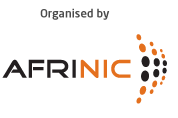 Abstract - Increasing the Broadband Penetration Rate in Africa
Abstract - Increasing the Broadband Penetration Rate in Africa Abstract - Increasing the Broadband Penetration Rate in Africa
The ICT sector can significantly impact the economic and social development through creation of new jobs, new technologies, new applications and services, with billions of dollars of revenue worldwide. Furthermore, ICT as an infrastructure can foster development of other economic sectors through services such as e-education, e-health, e-finance, e-government. These promises of Internet are achievable if there is a widespread access of the population to ICT.
However, in several sub-Sahara African countries, access to Internet is still limited to a privilege class of the society and the broadband penetration rates remain the lowest worldwide. For instance, the mobile broadband penetration rate in Africa is less than 5% while this rate is above 10% in any other region (ITU, ICT facts 2011). Moreover, several Internet users in Africa suffer from instable connection and low capacity. As an example, users in Europe have 25 times more international Internet capacity in average, than users in Africa (ITU, ICT fact 2011).
The major issues preventing widespread access to ICT are usually: lack of or weak national broadband backbone, insufficient sub-regional and regional interconnecting networks, inconsistent policy and/or regulatory framework, high access cost.
Although solutions are country specific, four key points must be considered in order to increase the broadband penetration rate: broadband infrastructure and connectivity, Internet connection and services, ICT public policy and innovation in ICT. More specifically, internet access can be expanded by promoting:
- implementation of a national broadband infrastructure through schemes such as PPP, operators commitment (e.g. through licensing), country policy and financial partnership
- sub-regional and transcontinental broadband networks
- affordable Internet access tariffs
- stable and secure Internet connection
- ICT public policy/regulation that attracts investors, fosters innovation and promotes
competition
- ICT universal access policy
- ICT specific taxation policy
- ICT local research and innovation in order to create new services, applications, technologies, businesses, etc.
















